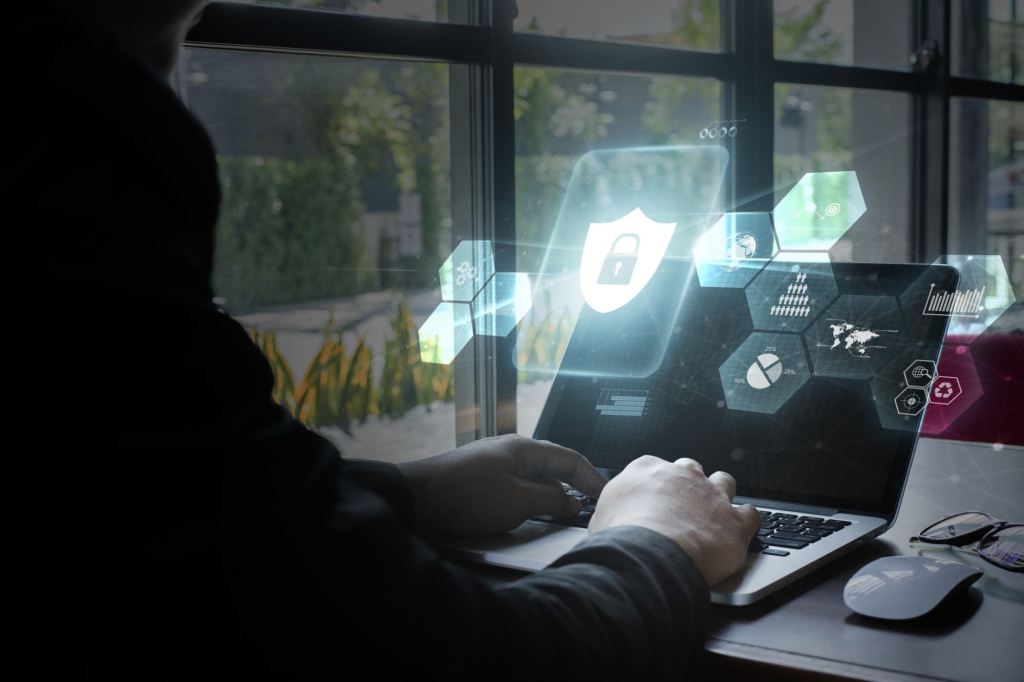
Many businesses are vulnerable to cybercrime due to a lack of cybersecurity, remote work, or other reasons. In either case, your employees play a crucial role in your security online. You can boost your cybersecurity by increasing their knowledge about safe behavior online and adding other measures. This way, you can avoid potential data breaches and leaks and keep hackers at bay. Here are some cybersecurity tips to keep in mind to prevent cyber threats from crippling your business.
Regular Software and System Updates
Small businesses might not have the necessary resources to perfect their cybersecurity. But being more cautious is a cost-free solution to boost their security. Being cautious also means keeping all your devices, applications, and operating systems up to date.
Updates patch potential security weaknesses, bugs, and other exploitable features. To remain safe, both employees and supervisors should actively update their software. Do not delay updates when they become available.
Using VPNs (Virtual Private Networks)
A cyber attack can severely damage a business’s reputation, cause it to lose valuable data, and other financial losses. What makes companies susceptible to data breaches and attacks? Workers may use public Wi-Fi connections or use their devices on various platforms that collect data.
To mitigate such risks, businesses can use VPNs to establish secure connections and provide them to remote workers. They can protect the privacy of their employees and business-related activities. But are VPNs worth it? It strictly depends on the chosen VPN provider and the available offers.
Some providers have strict no-log policies while others don’t, even if they encrypt it and mask IP addresses. Others offer better anonymity and many features, including the ability to use the software on multiple devices. Some VPNs may also have antivirus-like software and additional security features.
Sometimes, VPNs can be configured to restrict access. Companies can use this feature so that only authorized personnel can access company data. It would mitigate various worker concerns and issues, especially since it secures remote access.
Employee Cybersecurity Training
Two out of three businesses are vulnerable to cyberattacks because of their remote workforce. In other words, remote workers should have cybersecurity awareness.
Shifting to working from home might make employees let down their guard. People can forget that their home network is not as safe as in the office. They may not turn on the VPN when they start work with devices containing sensitive job-related information. Cybersecurity training would raise awareness, and the workers would be more careful.
Employees must know the best cybersecurity practices and how to recognize red flags. This means recognizing phishing attempts, creating strong passwords, and reporting suspicious activity. Workers should also know why it is important to avoid using public Wi-Fis unless protected by a VPN.
Robust Access Control and Multi-Factor Authentication
Businesses should consider using strong access controls and multi-factor authentication procedures. These measures increase the protection of critical systems and applications related to business operations. Bad actors will be less likely to gain access to your data with these security practices.
Comprehensive Data Backup and Recovery
With cybercrime on the rise, any business, regardless of size, is susceptible to attacks. That is why all companies should have a backup plan. You must have a plan B in case of a data breach. One successful cyber attack can damage a business indefinitely or forever.
To mitigate this, have a regular critical data backup protocol. A disaster recovery plan for your organization will also be helpful. It will help you deal with the impact of a cyber attack if it does occur. A cloud backup can help you to avoid the fatal effects of various types of malware and viruses.
For example, if ransomware holds your data hostage, you will still have your data backed up. In the worst case, you will only lose some time and a bit of money instead of your data, plenty of time, and lots of money. The faster your business can become operational again, the less money you will lose. So, being prepared pays off.
Continuous Monitoring and Incident Response
Lastly, companies should regularly monitor their networks and look for suspicious activity. A clear incident response plan must be in place to deal with security breaches or cybersecurity incidents. Employees will not aggravate the situation, which makes a huge difference during incidents.
It is crucial to stay updated on the latest cybersecurity threats and regularly inform your workers about possible red flags. Do not let your businesses be another victim of cybercrime. Invest in increasing your cybersecurity.
